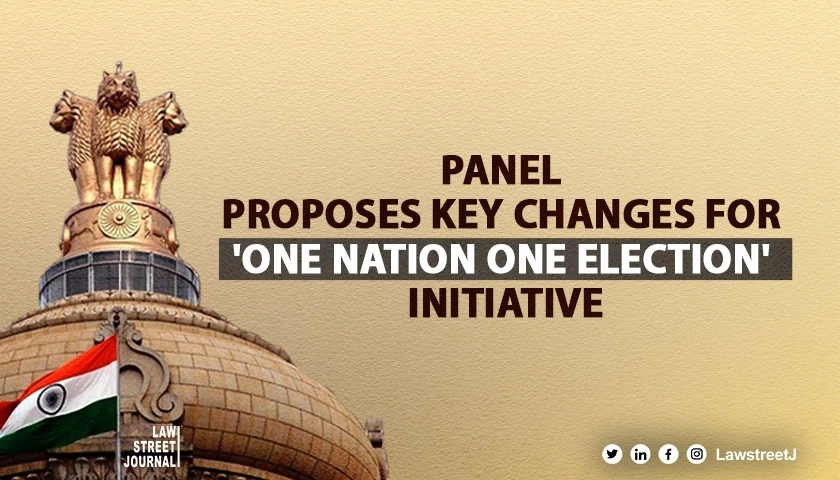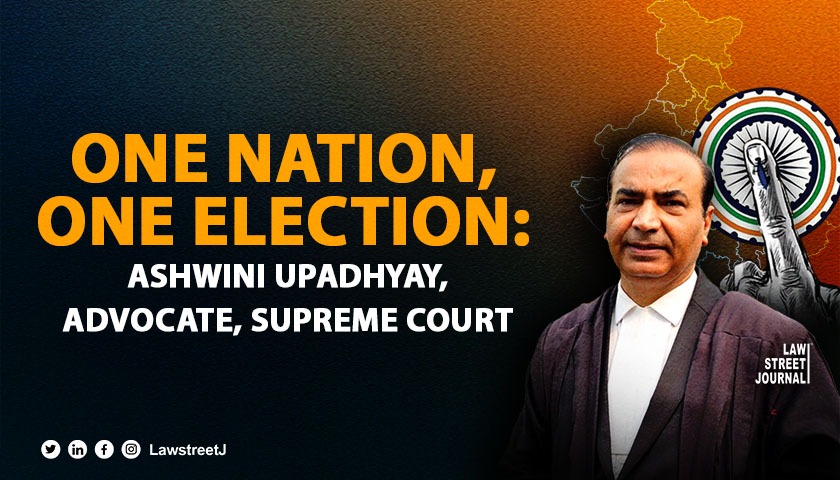NEW DELHI: A High Level Committee headed by former President Ram Nath Kovind on Thursday recommended for holding simultaneous polls, popularly known as One Nation One Poll, for all three tiers of governance.
Set up on 2nd September 2023 by the Government of India, the Committee, examined the issue for 191 days by holding consultations with various political parties, former judges, and other eminent citizens and various bodies to arrive at its conclusion. The panel presented its 18,626 page report to President Droupadi Murmu.
The idea was first mooted by Prime Minister Narendra Modi.
"Certainty is important for decisions central to good governance which leads to faster development. On the other hand, uncertainty invariably leads to policy paralysis. The recommendations of HLC which inter alia include synchronisation of elections in all the three tiers of government namely, the House of the People, the State Legislative Assemblies, Municipalities and the Panchayats, serve to forge an improved architecture of the governance. Their implementation would be in consonance with the quest of an aspirational India," it said.
Also Read - One Nation, One Election Report: Heres all you need to know [Read Report]
A public notice was issued in the newspapers and social media to invite suggestions and comments from citizens and organisations. Other stakeholders such as the Bar Council of India and apex business organizations like the Confederation of Indian Industry (CII), Federation of Indian Chambers of Commerce and Industry (FICCI), Associated Chambers of Commerce and Industry of India (ASSOCHAM) were also given opportunities to place their points of view.
Responses were also received from 47 political parties. Barring 15 political parties, the remaining 32 political parties not only favoured the system of simultaneous elections, but also advocated its adoption for saving scarce resources, protecting social harmony, and stimulating economic development.
Those who opposed simultaneous elections raised apprehensions that its adoption could violate the basic structure of the Constitution, be anti-democratic and anti-federal, marginalise regional parties, encourage the dominance of national parties, and result in a presidential form of government.
In its report, the Committee was of the unanimous view that simultaneous elections will bring fundamental transformation in the electoral process and overall governance. It will result in optimising scarce resources and also encourage voters to participate in the electoral process in larger numbers.
"Disruptions to governance and policy paralysis resulting from the application of the Model Code of Conduct and its adverse impact on economic growth will be mitigated. As pointed out by apex business organisations, simultaneous elections will also help them maintain their production cycle, as the incidence of workers leaving for their constituencies to cast their votes will be reduced. Workers, in particular migrant workers, will avoid wage losses and minimise travel costs," the Committee felt.
After examining reports of Law Commissions, Parliamentary panels and laws, the Committee unanimously opined that, in the first step, simultaneous elections to the House of the People and the State Legislative Assemblies be held.
In the second step, the elections to Municipalities and Panchayats will be synchronized with House of People and State Legislative Assemblies in such a way that Municipalities and Panchayats elections are held within hundred days of the holding of elections of the House of the People and the State Legislative Assemblies.
The Committee found that mostly the electoral rolls are prepared by the State Election Commissions after taking them from the Chief Election Commissioner. In some cases, the electoral rolls are prepared by the State Election Commissions on their own. At times, these preparations lead to duplication of work and in a few cases errors in the list.
It said there is a need to harmonise the actions of the two Constitutional bodies.
The Committee, therefore, recommended that Article 325 of the Constitution of India be suitably amended, to enable the preparation of a Single Electoral Roll and Single Electors Photo Identity Card by the Election Commission of India, in consultation with State Election Commissions.
The committee members were Amit Shah, Union Minister of Home Affairs and Minister of Cooperation, Ghulam Nabi Azad, former Leader of Opposition in Rajya Sabha, N K Singh, former Chairman, 15th Finance Commission, Subhash C Kashyap, former Secretary General, Lok Sabha, Harish Salve, senior advocate, and Sanjay Kothari, former Chief Vigilance Commissioner.
Arjun Ram Meghwal, Minister of State (Independent Charge) Ministry of Law and Justice was a Special Invitee and Niten Chandra was the Secretary of it.

.webp)














